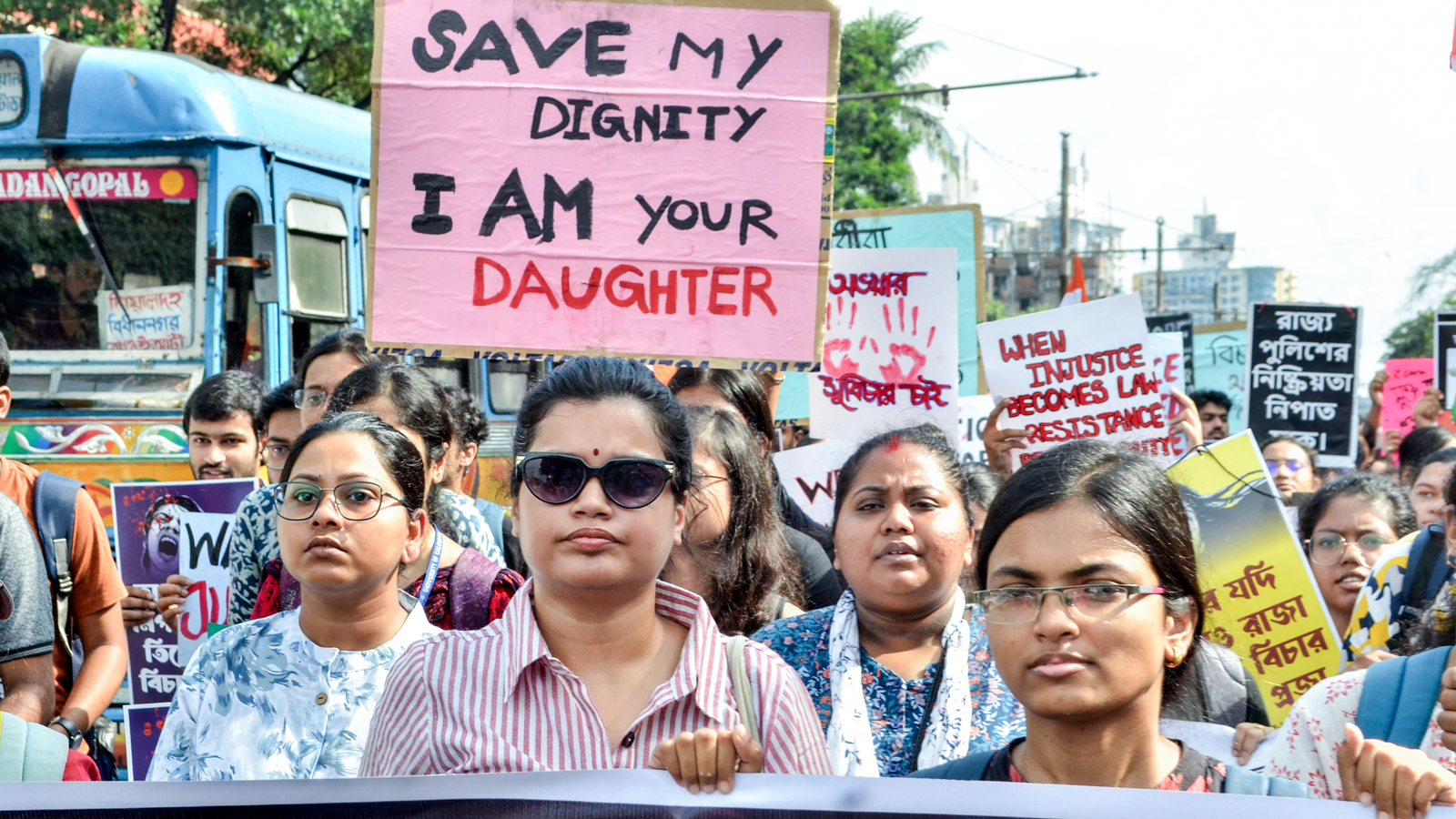It’s heartbreaking, infuriating, and utterly disappointing—yet this is the unfortunate reality women face today in India. Every day, stories of sexual assault surface, showing just how unsafe women are in even the most secure of places. Hospitals, traditionally seen as sanctuaries of care and recovery, are no exception. A recent horrifying case from Gurugram proves just that, as a 46-year-old air hostess was allegedly sexually assaulted while on a ventilator in the ICU of a private hospital.
This story is one that shakes the very foundation of our belief in basic human decency, let alone the safety of a woman who sought medical treatment. What is even more disturbing is the fact that hospital staff, who are meant to ensure care and protection, are implicated in this attack.
This incident leaves one asking: how is it possible that even in the ICU, a place meant to save lives, a woman can be subjected to such brutality? The answer lies in the systematic failures that continue to plague not just institutions like hospitals, but the very structure of our society and its disregard for the safety and dignity of women.

The Incident: Assault in a Critical State
A 46-year-old air hostess, who had come to Gurugram for a training program, was admitted to a private hospital after a swimming accident led to her hospitalization. On April 5, she was moved to Medanta Hospital, where her condition worsened, and she was placed on a ventilator. The incident allegedly occurred the following day, on April 6, while the woman was in a semi-conscious state, unable to speak or resist. It was during this time that she claims a hospital staff member sexually assaulted her, while two nurses were reportedly present in the room.
The victim, clearly terrified and unable to act, was in a vulnerable condition. The complaint made by the air hostess stated that she was very frightened and helpless during the assault. Despite the presence of the two nurses, they did nothing to stop the horrific incident. This negligence highlights a deep systemic problem within the medical establishment, where women's safety seems secondary, even in such sensitive situations.
What Happened After the Incident
The victim did not immediately report the assault due to her semi-conscious state and fear. She only confided in her husband after her discharge on April 13. Her husband, shocked and horrified, immediately contacted the authorities and sought legal advice before filing a complaint with the police on April 14, just a day after her discharge.
Following the complaint, the Gurugram police registered an FIR against the hospital's unidentified staff members, initiating an investigation into the incident. A spokesperson from the Gurugram Police assured the public that they were reviewing CCTV footage and questioning staff members to identify the perpetrator. At this stage, the investigation is still ongoing, and the police have promised to arrest the accused soon.
The Hospital's Response
Medanta Hospital, in its statement, claimed to be fully cooperating with the authorities in the investigation. They emphasized that they had handed over all relevant documents and CCTV footage to the police. The hospital stressed that no allegations had been substantiated at the time of their statement, and they would continue to work with the police to clarify the facts.
However, this response is deeply troubling. The hospital’s failure to prevent the assault and their passive involvement in the subsequent events raise serious questions about their commitment to the safety and well-being of patients. Despite their cooperation, the chilling details of the case raise serious questions about how such an incident could even occur in a place entrusted with the lives of the vulnerable.

The Police Investigation
The seriousness of the case prompted the formation of a special investigation team led by ACP Yashwant from the Sadar police station. The police have since been reviewing all available evidence, including CCTV footage, and questioning hospital staff who interacted with the victim during her stay. Although the investigation is moving forward, authorities have withheld certain details, as it is considered sensitive.
The police have recorded the victim's statement before a magistrate, and they are working to identify the assailant. While the authorities have assured the public that the accused will be arrested soon, the fact remains that this case sheds light on the vulnerabilities of women, even in medical environments that should be safe from harm.
Why This Should Matter to Everyone
The story of the air hostess is just one example of the many hidden stories of violence against women that continue to go unnoticed or underreported. Hospitals, of all places, should be sanctuaries of trust, where women can receive care without the fear of being violated. Yet, incidents like this shake the very core of that trust, making it difficult for women to feel safe, even in the most basic and necessary spaces.
What is even more tragic is the level of indifference displayed by the nurses who were present during the assault. The victim’s complaint explicitly states that two nurses were in the room when the assault occurred, yet they chose not to intervene. This failure to act, to protect, is just as disturbing as the assault itself. It speaks to a deeper cultural problem within institutions, where the safety of women is not taken seriously, even by those who are supposed to be their protectors.

A Heartbreaking Pattern of Violence Against Women
The Gurugram incident is a reflection of a broader, disturbing trend of violence against women that continues to afflict India. The air hostess’s assault while on a ventilator is one example, but it is far from an isolated case. Similar incidents have occurred across the country, highlighting a serious issue with the safety and protection of women, even in places where they should feel most secure.
-
Molestation by E-bike Taxi Driver: An air hostess was allegedly molested by an e-bike taxi driver in East Delhi while returning home. The driver diverted the route, took her to a secluded area, and assaulted her. Thankfully, she was rescued, but the lack of security in public transport remains a significant issue for women.
-
Sexual Assault in Schools: Another case in Delhi involved the sexual assault of a nine-year-old girl by a van driver over a period of one-and-a-half years, showing that even institutions meant for children are not immune to such crimes.
These examples serve as grim reminders that women, whether at work, in transit, or in medical care, continue to face dangers that compromise their safety and well-being. The systemic failure of authorities to protect them, coupled with the indifference displayed by those in positions of responsibility, only exacerbates the problem.
What Needs to Change
The tragic incident in Gurugram underscores the urgent need for institutional reforms to safeguard women’s rights and security. Here are some necessary steps that must be taken:
-
Stricter Security Protocols in Hospitals: Hospitals must implement more stringent security measures, including surveillance and background checks on all staff. The presence of two nurses in the room who failed to intervene speaks to a larger failure of institutional responsibility.
-
Accountability for Medical Personnel: Medical staff must be trained to recognize and act swiftly in situations where patients are vulnerable, especially in critical care units. The two nurses in this case failed to protect the victim, raising questions about their training and awareness.
-
Faster Legal Processes: The justice system needs to act faster in sexual assault cases, especially when the victim is in a vulnerable condition, such as when unconscious or under sedation. The victim in this case had to endure unnecessary delays before she could report the assault, which only prolonged her trauma.
-
Public Awareness and Support Systems: Women should be encouraged to report any form of abuse without fear of retaliation or disbelief. Support systems for survivors of sexual assault should be robust and accessible, allowing them to come forward with confidence.
A Sad Reality for Women in India
The assault of this air hostess in Gurugram serves as a stark reminder of how deeply rooted the problem of violence against women is in Indian society. Hospitals, by their very nature, should be places of healing, not horror.This disturbing trend must change, and it is only through collective action—better systems, better enforcement, and a shift in societal attitudes—that we can begin to protect women in every space, especially those where they should be most vulnerable to harm.
The sexual assault of this air hostess is not just an attack on an individual—it’s an attack on the very concept of safety and dignity that every woman in India deserves. Until we confront these issues head-on and demand accountability, the safety of women in our society will remain an illusion.
With inputs from agencies
Image Source: Multiple agencies
© Copyright 2025. All Rights Reserved Powered by Vygr Media.























